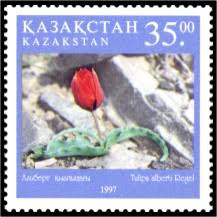Kazakhstan: Understanding Its Role in Central Asia

Introduction
Kazakhstan, the world’s largest landlocked country, plays a pivotal role in Central Asia due to its vast natural resources and strategic geographic location. As a nation that bridges Europe and Asia, Kazakhstan stands at the crossroads of trade, culture, and political dynamics, making it a significant player on the international stage. The country has been experiencing notable economic growth and regional influence, particularly after the collapse of the Soviet Union.
Current Events and Developments
In recent years, Kazakhstan has focused on bolstering its economy, particularly through initiatives like the Nurly Zhol program aimed at modernizing infrastructure and attracting foreign investment. The country has also made headlines for its Multilateral Cooperation policies, fostering relationships with neighboring countries like China and Russia. In 2023, Kazakhstan signed several agreements with China to facilitate trade through the Belt and Road Initiative, enhancing its role as a transit point for goods between Europe and Asia.
Additionally, Kazakhstan is rich in mineral resources, including uranium, which it produces at the highest levels globally. This positions Kazakhstan as a key player in the development of sustainable energy production and nuclear power. On the cultural front, Kazakhstan has hosted various international events, including the Arab League and ASEAN summits, highlighting its diplomatic initiatives and fostering global conversation.
Social and Economic Challenges
Despite its progress, Kazakhstan faces challenges, including regional disparities in economic development and issues related to governance and human rights. The country is making strides towards modernization and reform, but criticism from international organizations about political freedoms remains a significant hurdle to overcome. Maintaining a balance between its economic ambitions and social needs is crucial for the country’s future development.
Conclusion
Kazakhstan is undoubtedly a country of opportunities, with significant potential for growth and development. As it navigates the complexities of regional politics and economic ties, the future belongs to those who understand its significance in Central Asia. Kazakhstan’s strategic initiatives, coupled with its commitment to reform, will likely influence not just its own trajectory, but also the future of Central Asia as a whole. For investors and global partners, staying informed about Kazakhstan’s evolution is essential, offering pathways for collaboration and mutual growth.







